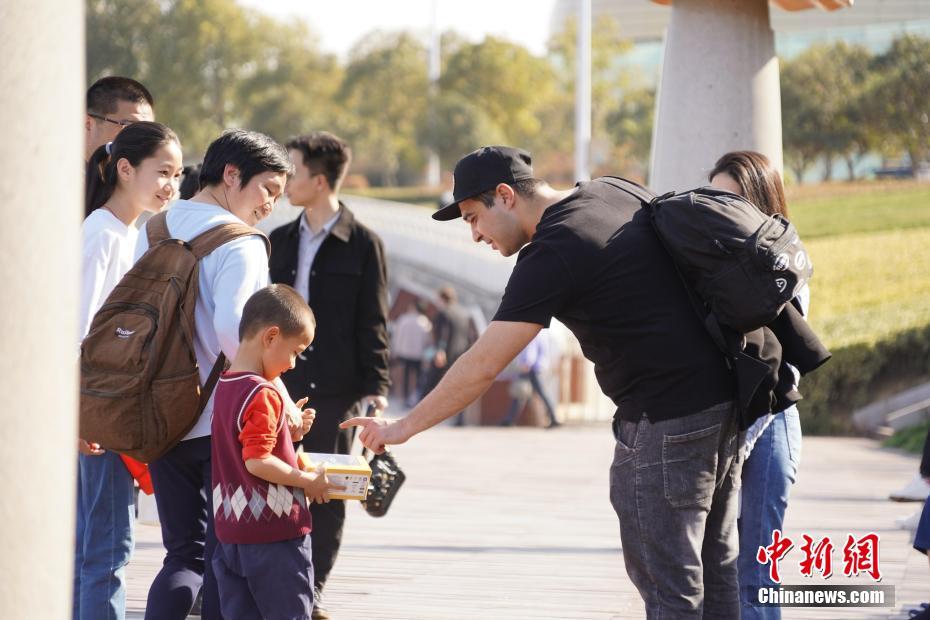By Ma Jiajia & Jiang Wenqian From CNS
American sociologist, writer and country music singer Mark Levine is an educator at Minzu University of China in Beijing. A professor of the Union of Western and Eastern Education headquartered in Beijing and an expert of China International Talent Exchange Foundation, a Chinese non-profit organization, he is the author of Stories from My Chinese Journey and Demystifying Impromptu Speech. He uses American country music to tell Chinese stories and has composed over 70 songs themed on China. He has been given honorary “citizenship” of Huai’an, a city in Jiangsu Province in east China, and is also a recipient of the Beijing Great Wall Friendship Award, and the Chinese Government Friendship Award for his outstanding contribution as a foreign expert in China’s modernization and reform and opening up.
Mark Levine discusses the ideological and cultural differences between the East and the West, as well as the barriers to bilateral exchanges and mutual learning.
CNS: You have been in China since 2005. What significant changes have you seen in this period? And how did you come up with the idea of using music to tell the stories of China?
Mark Levine:My first stop in China was Huai’an, the hometown of the late Premier Zhou Enlai. It was there that I wrote my first song after coming to China, “Huai’an—Promise of the Future,” as I felt there was a bright future ahead.
It was in China that I was inspired to start writing songs. I love strumming my guitar while walking in the streets and when inspiration strikes, I will write the song down. I wrote a song while rafting on the Lijiang River. Later, I started to write on specific themes. Music is a more convenient way to communicate than writing books.
When talking about the changes in China over the years, people will normally mention WeChat, the Chinese social media and instant messaging as well as payment app, high-speed railway and so on, but to me there is something more important. When I first came to China, I found many young Chinese were not confident about the future of their country and themselves. They wondered why there was only “made in China” instead of “designed in China” in the sector of mobile phones. You don’t see that any more. Young people today are proud and confident. This sense of pride is internalized and creates motivations that impact individual behavior.
CNS: What are the differences and similarities in the ways the East and the West think? Can they reach mutual understanding?
Mark Levine:I wrote a song about China’s response to the COVID- 19 pandemic, and before that, I had written songs about the response to the 2008 earthquake in Wenchuan in southwest China (in which over 60,000 people were killed), blizzards, floods and other disasters. The common theme of these songs is that the Chinese government, military, police, enterprises and people always come together as one. In the U.S., however, often time is wasted debating whether to do this or that. It’s not easy for everyone to work together to address problems. This reflects the nature of traditional Chinese culture and modern civilization, which is the understanding that problems can be resolved only through joint efforts. The United States, on the other hand, has always been too much focused on individual achievement and pursuit. In the case of its response to the COVID-19 pandemic, a lack of unity made things worse. Besides, the Chinese people are more willing to lend a hand when others are in difficulty than Americans. I hope Americans can gain more understanding of China, especially in these areas.
 File Photo: A foreign tourist interacts with a child in Zhengzhou, capital of central China's Henan Province. (Photo: Kan Li/China News Service)
File Photo: A foreign tourist interacts with a child in Zhengzhou, capital of central China's Henan Province. (Photo: Kan Li/China News Service)